 W
WAalaap mein girah is the first collection of poems by Hindi poet Geet Chaturvedi, published in Hindi in 2010 by Rajkamal Prakashan, New Delhi. Geet Chaturvedi was awarded Bharat Bhushan agrawal award for poetry in 2007 for his poem Mother India.
 W
WAb Har Shaam Niraali Hogi is a poetry book written by Krishan Kumar Sharma "Rasik" in August 2011. This is a Hindi Poetry work consisting of 47 poems based upon romance and sorrow.
 W
WAbol tabol is a collection of Bengali children's poems and rhymes composed by Sukumar Ray, first published on 19 September 1923 by U. Ray and Sons publishers. It consists of 46 titled and seven untitled short rhymes (quatrains), all considered to be in the genre of literary nonsense.
 W
WAjavasnan Matsya is the first collection of poems by Pravin Pandya in Gujarati. It was published by Kavilok Trust in May 1994.
 W
WThe Amaruśataka or Amarukaśataka, authored by Amaru, is a collection of poems dated to about the 7th or 8th century.
 W
WAshwattha is a collection of poems written by Natwarlal Kuberdas Pandya, also known as Ushnas, in Gujarati. The book won the Sahitya Akademi Award for Gujarati in 1976. It is considered Ushnas's finest work in Gujarati.
 W
WAtmanimajjan is an 1895 collection of poems in Gujarati by Indian writer Manilal Dwivedi. The poems in the collection are heavily influenced by Advaita (non-dual) philosophy, which was at the core of Manilal's philosophical thinking. Uniquely in Gujarati poetry, for each poem Manilal wrote a long commentary, interpreting it in terms of Advaita philosophy.
 W
WBanalata Sen is a collection of poems by Jibanananda Das. During Das's lifetime, it was published twice: first time in Poush 1349 Bengali calendar with a cover by Sambhu Shaha including 12 poems, and second time in Srabon 1359 Bengali calendar an enlarged version with a cover by Satyajit Ray including 30 poems. Das named the volume after the poem: "Banalata Sen", one of Das's finest poems, certainly his most popular. The enlarged edition published by Signet Press was awarded in 1953 at the Nikhil Banga Rabindra Sahitya Sammelan. The recurring themes in the poems of this volume are love, nature, time, temporariness of life and love, etc. Above all, a historical sense pervades everything. The names that frequent in many poems are Suchetana, Suranjana, Sudarshana and Syamali and these women are deemed above or beyond women in general. In these poems, the love Das talks about crosses the boundaries of time and place and sometimes seems impersonal too.
 W
WBarda Na Dungar, preceded by Ajavasnan Matsya, is a Gujarati language poetry collection written by Pravin Pandya. The book won Uma-Snehrashmi Prize (2008-09).
 W
WBhitarno Shankhanaad is a collection of Gujarati ghazals by Bhavesh Bhatt. It is published by Rannade Prakashan, Ahmedabad in January 2014. It is preceded by Chhe To Chhe. The preface of the book has written by Rajesh Vyas 'Miskin', Ankit Trivedi and Dr. Sharad Thaker.
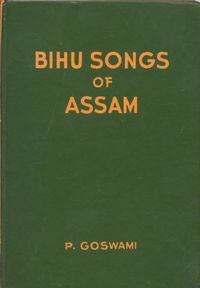 W
WBihu Songs of Assam is a book authored by Prafulladutta Goswamil, and published by Lawyers Book Stall in 1957. The book is a collection of 262 Bihu songs collected as early as 1921, which were first put into print in 1934. Although the songs are in English, each song is later shown in original Assamese text.
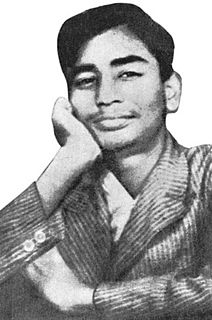 W
WChharpatra (1948) is a Bengali book of poems written by Sukanta Bhattacharya. Sukanta wrote the poems of this book from 1943–1947. He died at the age of 21 and this book was published few days before his death.
 W
WChhe To Chhe is an anthology written by Bhavesh Bhatt containing Ghazals in Gujarati language. It was first published in May 2008. The book was followed by Bhavesh's another book Bhitarno Shankhanaad in 2014
The Country Without a Post Office is a 1997 collection of poems written by the Kashmiri-American poet Agha Shahid Ali. The title poem, which has become a symbol for freedom, is one of the most famous about Kashmir. In the decades since its publication, under renewed conflict and censorship in the region, it has been cited by politicians, protestors, academics and journalists. The collection brought Ali critical acclaim, universal praise and a Guggenheim Fellowship.
 W
WDalkhithi Saav Chhutan is a collection of committed poetry in Gujarati written by Ashok Chavda 'Bedil'. The book won the Yuva Puraskar (2013) instituted by Sahitya Akademi, New Delhi. The book consists of deep and intense emotions of the poet expressed in different forms of poetry such as ghazal, Geet, and free verse. The poems in this book deal with social issues in India, such as castism and untouchability.
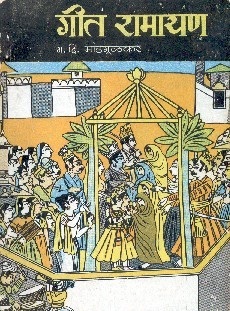 W
WGeet Ramayan is a collection of 56 Marathi language songs chronologically describing events from the Indian Hindu epic, the Ramayana. It was broadcast by All India Radio, Pune in 1955–1956, four years before television was introduced in India. Written by G. D. Madgulkar and the songs being composed by Sudhir Phadke, Geet Ramayan was acclaimed for its lyrics, music and singing. It is considered a "milestone of Marathi light music" and the "most popular" Marathi version of Ramayana.
 W
WJatayu is a Gujarati poetry collection by Sitanshu Yashaschandra published in 1986. It is a collection of surrealistic poems based on Indian mythology, romantic temper, modern consciousness, and nature. It won the Sahitya Akademi Award in 1987.
 W
WKusumamala is a collection of poems by Gujarati writer Narsinhrao Divetia published in 1887. It is considered Divetia's magnum opus and a milestone in the history of modern Gujarati poetry. The poems were written in the manner of English lyrical poetry. The work was well received by the new school writers while criticised by old school writers.
 W
WMelodies and Guns is a poetry collection in English, edited by Indira Goswami and authored by Megan Kachari, the arrested Central Publicity Secretary of ULFA. The original version is in Assamese with the title Memsahib Prithibi published in 1990. It was translated into English by Pradeep Acharya and Manjeet Baruah and published by UBS Publishers Distributors Ltd, Delhi in 2006. The preface of the book is written by Jnanpith Awardee Indira Goswami.
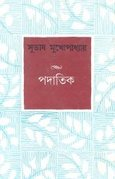 W
WPadatik first published in 1940 is a Bengali book of poems written by Subhash Mukhopadhyay. This was Mukhopadhyay's first published book. This book created a storm in Bengali literature. Mukhopadhyay wrote this book as a representative of a political party. Mukhopadhyay in his personal life was a consistent Marxist. In this book, poet showed his zeal to redeem the poor and suffering masses from exploitation.
Phire Esho, Chaka is a Bengali poetry book written by Binoy Majumdar. The book was published in 1961 and then republished in 1962 under the title Phire Esho, chaka. This book was a collection of romantic poems written for Majumdar's contemporary Gayatri Chakravorty Spivak. The book was also dedicated to Gayatri Chakravorty. The word "Chaka" which means "Chakra" is Sanskrit, was a part of Gayatri Chakravorty's surname! This book is considered as the most famous book of Majumdar, the book was written in format of a diary. Majumdar used dates as poem titles such as, 8 March 1960, 27 June 1961, 1 July 1961 etc.
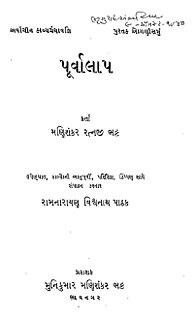 W
WPurvalap is a posthumously published collection of poems by Manishankar Ratnji Bhatt alias Kavi Kant, in 1923. Kant has invented a new form of Khandkavya by blending the Greek and Sanskrit concepts of tragedy. Kant has given many literary significant poems by this work such as Vasant vijay, Chakravakmithun, Devyani and Sagar Ane Shashi.
 W
WRuposhi Bangla is the most popular collection of poems by Jibanananda Das, the great modern Bengali poet. Written in 1934, the sixty-two sonnets - discovered in an exercise-book twenty years after Das wrote them - achieved instant popularity on their posthumous publication in 1957, becoming a totemic symbol of freedom in Bangladesh's 1971 War of Independence. In Ruposhi Bangla, Das seamlessly blends in both real and mythical historical figures, as well as mythical creatures such as the shuk bird, weaving a tapestry of a beautiful, dreamlike Bengal The poems celebrate the beauty of Barishal. In these poems infused with a scent of unrequited love, Jibanananda Das captured his country's soul through evocations of village life and natural beauty. Satyajit Ray designed the cover of 1957 edition.Go where you will – I shall remain on Bengal’s shore Shall see jackfruit leaves dropping in the dawn’s breeze; Shall see the brown wings of shalik chill in the evening, Its yellow leg under the white down goes on dancing In the grass, darkness – once, twice – and then suddenly The forest’s oak beckons it to its heart’s side, Shall see sad feminine hands – white conch-bangles Crying like conch shells in the ash-grey wind: She stands on the pond’s side in the evening, As if she will take the parched rice hued duck To some land of legends – As if the fragrance of the quiltcover clings to her body, As if she is born out of watercress in the pond’s nest – Washes her feet silently – then goes faraway, traceless In the fog – yet I know I shall not lose her In the crowd of the earth – She is there on my Bengal’s shore.
 W
WSandhya Sangeet is a poetry book written by Rabindranath Tagore in 1882. In English it was translated as Evening Songs. The book was followed by Tagore's another poetry collection Prabhat Sangeet (1883).
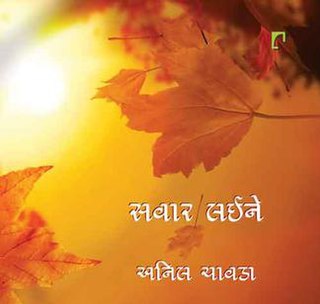 W
WSavaar Laine is the first collection of ghazals written by Anil Chavda, a poet from Gujarat, India. The book won the Yuva Gaurav Award of 2014, instituted by the Sahitya Akademi, Delhi. The book was reviewed by Gujarati poets and writers including Chandrakant Topiwala, Raghuvir Chaudhari, Chinu Modi, Harsh Brahmbhatt and Saumya Joshi.
 W
WShabda Mara Swabhawma J Nathi is a Gujarati collection of ghazals written by Raeesh Maniar. The book was published by Vishal Publication, Mumbai in May 1998. Maniar wrote all of the ghazals of this book during his practice as a pediatrics.
 W
WTrun No Grah is a collection of poems written in Gujarati by Natwarlal Kuberdas Pandya, better known by his pen name 'Ushnas.' The book received the Narmad Suvarna Chandrak in 1963. It is considered one of the finest works of poetry in Gujarati literature.
 W
WVitan Sud Beej is an anthology of poems written by Ramesh Parekh in the Gujarati language. The book won the Sahitya Akademi Award for Gujarati in 1994.